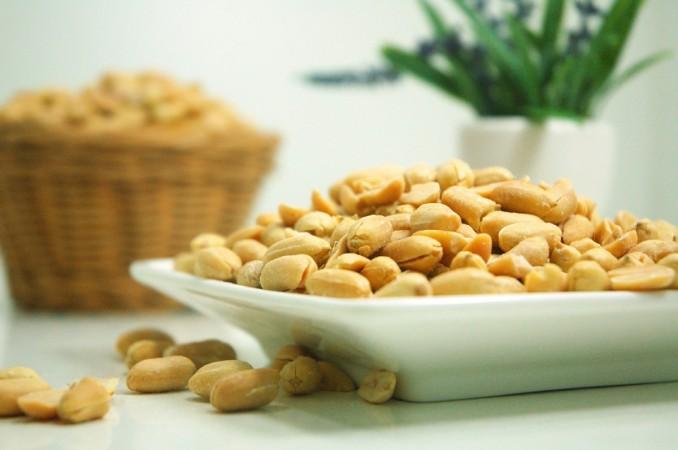
New research reveals that eating three ounces of peanuts along with a meal can help reduce the risk of cardiovascular disease.
Also Read: Iceland celebrated their Euro 2016 victory against England way too HARD!
This study was carried out by researchers from Pennsylvania State University with Professor Penny Kris-Etherton as the lead author.
Heart ailments are the leading cause of death around the world, according to 2015 HeartDisease and Stroke statistics; 17.3 million deaths happen every year because of heart disease. The figure is likely to reach over 23.6 million by 2030.
The research was conducted on 15 overweight but otherwise healthy males. They consumed three ounces of ground unsalted peanuts, along with meals rich in fats, but researchers found that the levels of fat in their bloodstream was low, Prof Kris-Etherton said in a statement.
A control group was given a shake of similar nutritional quantity, without the peanuts. Their blood samples were taken by researchers to analyse the levels of lipids, lipoproteins and insulin after a span of 30, 60, 120 and 240 minutes.
In previous studies, a trigger was observed in the blood lipid level of people after the meal. This increase in the blood lipids causes fatal cardiovascular disease.
The blood flow of the group was measured with the help of an ultrasound machine. The researchers found that participants who ate peanuts had 32 per cent lower levels of blood lipids — triglyceride — in contrast to the control group.
"Typically, whenever we eat something, it causes the arteries to get a little bit stiffer during the post-meal period, but we have shown that if you eat peanuts with your meal, this can help prevent the stiffening response," said Prof Kris-Etherton.
"When the stiffening response happens in the cells that line the arteries, resulting in decreased elasticity in the arteries, it can limit the availability of nitric oxide, and when there's less nitric oxide, the arteries don't dilate that much. What you want is a dilation of the arteries and for them to be really elastic," she added.
The blood flow in the body is limited due to arterial stiffening; due to this the heart needs to work harder, this in turn results in making the body prone to heart ailments over a span of time.
"As the heart works harder and harder, over a long period of time, it could lead, ultimately, to heart failure," Prof Kris-Etherton explained.
Peanut consumption aids in keeping the arteries more elastic and healthy. The research shows that eating peanuts with a meal results in a depletion in the production of a type of blood lipids called triglycerides in the body, post meal.
"After a meal, triglycerides increase and this typically decreases the dilation of the arteries, but the peanuts prevent that big increase in triglycerides after the meal," said Kris-Etherton. "And that may be the mechanism behind this effect, because the triglycerides are not getting so high, which may explain why there is not a decrease in artery elasticity."
According to the researchers, three ounces of peanuts is around three times the amount of an average serving. In this study, the participants were given peanuts ground into a shake, but the researchers stated eating the nuts without crushing them should also have the same effect on the body.
They also said that both women and men participants would be included in the research in future.















